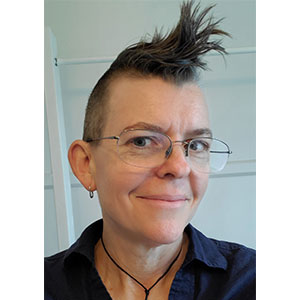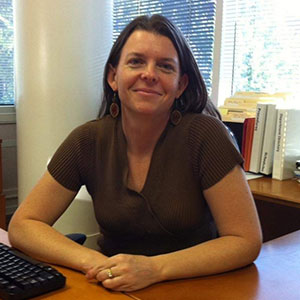Corey Anderson, 25 years
Academic Department Administrator
Emory College of Arts & Sciences – Anthropology

Tell us a little about the work you’ve done at Emory throughout your career.
My first job at Emory was with an international public health organization affiliated with The Carter Center then called the Task Force for Child Survival and Development (now the Task Force for Global Health). I had been hired away from my first post-college job doing constituent services for US Senator Sam Nunn. I worked at the Task Force doing administrative and program development for seven years. I took a 3-year break while my kids were small, and then returned to Emory as the administrative assistant for the Health Education and Promotion Office (within Student Health/Campus Life) and worked in that role for 3 years. I then became the Office Manager for the Pathology Department in the School of Medicine in 2008 and worked in Pathology for 15 years. For 7 of those years I was the Assistant to the Chair. In early 2023, looking for a new challenge, I become the Academic Department Administrator for the Department of Anthropology.
What are some of your favorite memories of your time at Emory?
I enjoyed learning about global public health programs at the Task Force. I felt like I was a part of something greater and important.
What are some of the most significant changes you have witnessed over the course of your career?
Much of the jobs I have held used to be done on paper and kept in files and binders. Now the vast majority of work is done online and stored in the cloud. Medicine has changed and become more and more subspecialized. Even Anthropology, a field I am new to, is going through great academic and pedagogical transformations.
This picture was taken in 2008 when I first began in Pathology.
Is there anything you miss from “back in the day”?
Before I had kids, the job used to be a center of social activity. Co-workers would go to lunch together and get drinks on Thursday and Friday nights. We celebrated each other’s marriages, new houses, new babies.
What do you hope for the future of Emory?
I hope that Emory can continue to be a place where staff and faculty are proud to work and contribute. I’m concerned that this institution with its great wealth and privilege is becoming less responsive to the concerns and needs of the people who make it work.